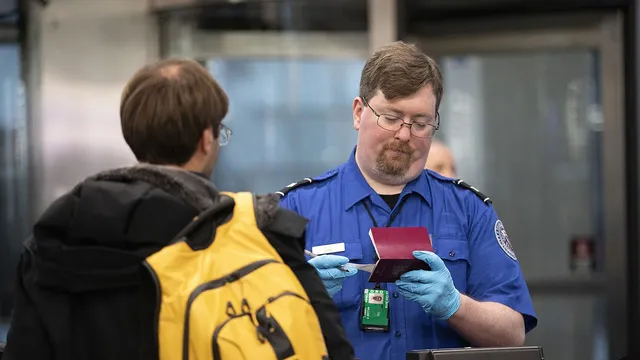
Real ID law enforcement begins, travelers scramble for compliance
2025-04-10 13:01- Residents in the Bay Area are facing long waits at DMV offices to secure Real ID appointments.
- State-issued driver's licenses that are not Real ID-compliant will not be accepted for air travel starting May 7, 2025.
- The deadline has led to a nationwide surge in applications, highlighting the urgency for compliance.
Express your sentiment!
Insights
In the United States, the looming enforcement of the Real ID law on May 7, 2025, has prompted significant urgency among residents, particularly in the Bay Area, to secure appointments at local DMV offices. Many residents are encountering long wait times as they rush to obtain a Real ID before the deadline, which is necessary for air travel. The requirement of a Real ID will eliminate the acceptance of non-compliant state-issued driver's licenses at airport security, although travelers can still use alternatives such as passports or other federally approved forms of identification. As the deadline approaches, DMV offices across the country are experiencing a surge in applications for Real IDs, with DMV spokesperson Jaime Garza acknowledging the increase in demand. The situation has been compounded by previous delays due to the COVID-19 pandemic, further emphasizing the urgency for compliance before the law is enacted.
Contexts
Real ID is a federal initiative that aims to enhance the security of state-issued identification cards and driver's licenses. The Real ID Act was passed by Congress in 2005 in response to the events of September 11, 2001, and the need for improved identification standards in the age of terrorism. This initiative establishes minimum security standards for federal identification documents, making it mandatory for states to comply in order to ensure their ID cards are accepted for certain federal purposes, such as boarding commercial flights or entering federal facilities. As of April 2025, the enforcement of the Real ID requirements is in full effect, emphasizing the importance of compliance for both state governments and citizens alike. The importance of Real ID cannot be overstated, particularly regarding travel and access to secure facilities. Without a compliant ID, individuals may face difficulties when attempting to fly domestically or access certain government buildings. This law was designed to create a more secure framework for identification in order to prevent fraud and increase public safety. To that end, the Real ID Act demands that states incorporate various security features into their issued IDs, including anti-counterfeiting technology, increased document verification processes, and stringent proof of identity and residency requirements for applicants. Additionally, the Real ID initiative plays a crucial role in the standardization of identification practices across the United States, facilitating better collaboration among state and federal agencies. By ensuring that all states verify the identity and residency of individuals through a consistent set of criteria, the Real ID system aims to reduce the potential for identity theft and improve the overall security landscape. This coordination is essential in a rapidly evolving world where traditional means of identification must adapt to contemporary threats. While states have made significant progress in complying with the Real ID requirements, challenges remain, particularly in educating the public and ensuring that all residents understand the necessity of obtaining a compliant ID. Many citizens may be unaware of the implications of not having a Real ID, leading to confusion and potential disruptions in their mobility and interactions with federal services. As government agencies continue to promote awareness of the Real ID framework, it will be critical for individuals to take proactive steps to secure an compliant identification document, ensuring that their access to essential services and travel remains uninterrupted.